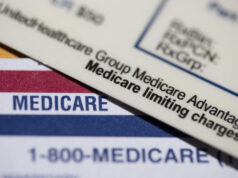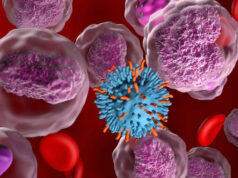Dementia and Alzheimer’s Disease
What You Should Know
by Dr. Yakir Kaufman

Dementia is a progressive decline in mental ability, affecting memory, thinking, judgment, attention span and learning. Although dementia usually develops after the age of 60, it is not a natural part of aging.
The most common type of dementia results from Alzheimer’s disease. Around the world, there are 34 million victims of Alzheimer’s and other types of dementia; five or six million live in the US, and about 100,000 in Israel. Many post-World War II baby boomers now entering retirement are likely to live into their 90’s, so Alzheimer’s will become an even more severe problem unless something is done to stop or prevent it. The worldwide cost of caring for dementia patients is estimated at over $400 billion a year, $3 billion in Israel alone. With the aging of the population, dementia is a looming medical, social, ethical and financial catastrophe.
The exact cause of Alzheimer’s disease remains unclear. The disease begins slowly, and gets progressively worse over time. There is a gradual decline in memory, the ability to keep track of time, and the ability to recognize people, places and objects. It becomes more and more difficult to find and use the appropriate words. There are often changes in personality and behavior as well.

Multiple small strokes are the second most common cause of dementia. This is often referred to as multi-infarct dementia. Recurrent mini strokes may not cause the same type of weakness and paralysis that large strokes produce, but over time the brain cells will be compromised. An infarct refers to a blockage of blood flow to tissue, causing it injury. As these injuries accumulate in the brain, its normal functioning is affected, hence the term multi-infarct dementia.
Scientists are investigating associations between cognitive decline and vascular and metabolic conditions such as heart disease, stroke, high blood pressure, diabetes and obesity. Understanding these relationships and testing them in clinical trials will help us understand whether reducing risk factors for these diseases may help with Alzheimer’s as well.
Current therapies usually provide symptomatic relief only, in the short run. We know that high cholesterol and high blood pressure are early warning signals of heart disease, but we have no proven markers for early-stage dementia. New approaches that identify incipient disease, and novel therapies that will prevent or modify the progression of brain cell death and the onset of the most disabling symptoms, are urgently needed.
Israel is an important place for Alzheimer’s research. The population is small and manageable, and Israelis have a relatively long life expectancy. Israel has a solid scientific infrastructure and much successful involvement in medical research and has a great deal of fantastic medical talent. Israel partners in research with the US and Europe.
We wish we could tell people that taking a pill or doing a puzzle every day would prevent this terrible disease, but current evidence and clinical practice doesn’t support this.
Here are some steps you can take to prevent mild memory loss and to help fight against dementia:
Enhance Your Life: Get out more, socialize, have more fun, try to worry less and embrace your spirituality.
Reduce Stress: Learn and practice regular relaxation techniques.
Treat Depression: Depression is associated with cognitive decline and Alzheimer’s disease. If you feel depressed, tell your doctor.
Maintain a Positive Attitude: Studies show that a positive emotional state may help ward off cognitive decline. Social ties, involvement in synagogue and community, and meaningful relationships all seem to be protective.
Stay Active: Enhance your occupational well-being by choosing active, rather than passive, activities. Try activities that have elements of responsibility and givinghelp others. Having purpose in your life has been associated with a significant reduction in risk of developing memory loss and developing Alzheimer’s disease.
Keep Your Blood Pressure Under Control: High blood pressure is the strongest risk factor for multi-infarct dementia. On the other hand, over treatment of blood pressure, especially in the elderly, can cause lack of sufficient blood supply to the brain. This is called hypoperfusion and can cause cognitive and functional decline.
Exercise Regularly: You can slow memory loss with regular aerobic exercise. Try doing 30 minutes of aerobic activity a couple of days each week. First check with your physician to find out what sort of exercise is best for you.
Eat a Diet Rich In Antioxidants and Omega-3 Fatty Acids: Fruits and vegetables are the best sources of antioxidants, although tea and dark chocolate contribute as well. Cold-water fish, freshly ground flaxseed and walnuts provide omega-3s.
Keep Your Mind Active: Do mentally stimulating activities. Puzzles are fun and keep your brain stimulated.
Avoid Excessive Alcohol Consumption: Alcohol’s damaging effect on brain cells is well established in medical literature.
Have Regular Blood Tests: Your doctor should check your vitamin levels and thyroid function and tell you what to do if levels are low.
_________
Dr. Yakir Kaufman is the Director of Behavioral Neurology at Herzog Hospital in Jerusalem. His research has been published in prestigious publications



